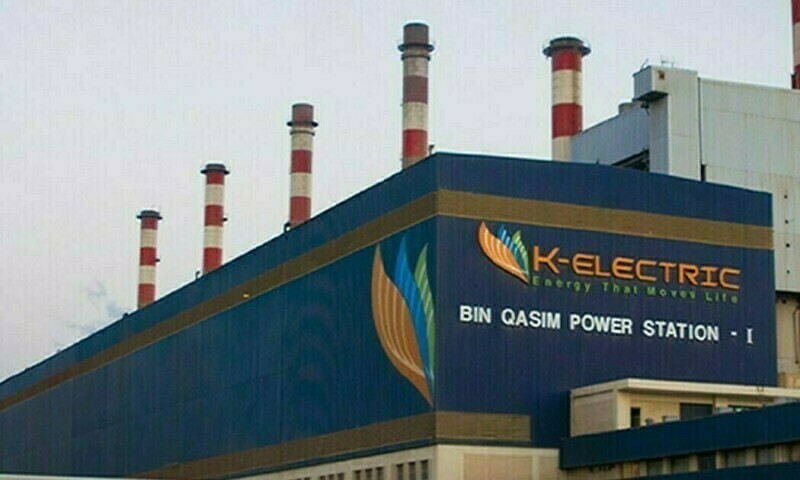ISLAMABAD: The National Electric Power Regulatory Authority (Nepra) on Wednesday approved a Rs4.98 per unit refund for K-Electric consumers for November’s fuel cost adjustment (FCA), applicable in February bills. However, the regulator wondered why the utility should have a generation licence if it’s drawing more than two-thirds of its supply from the national grid.
At a public hearing convened on KE’s request for Rs4.98 per unit negative fuel cost adjustment for electricity consumed in November, Nepra’s technical member from Khyber Pakhtunkhwa, Maqsood Anwar, expressed concerns over KE’s overwhelming reliance on the national grid.
He said that if K-Electric was meeting its 67pc requirement from the national grid (about 2,000 MW), it should also draw another 33pc from the National Transmission and Dispatch Company (NTDC) as well. He said that such a heavy reliance on the NTDC put a question mark on the KE’s long-term sustainability.
The negative FCA entails about Rs7.2bn financial impact that is driven by an increase in NTDC offtake starting from Nov 4, with the quantum rising to 67pc compared to the 52pc target.
Suggests revoking generation licence, since 67pc supply drawn from NTDC; okays Rs5/unit refund for its consumers
Mr Anwar suggested the possibility of revoking K-Electric’s generation licence, stating that the utility’s increasing reliance on the NTDC undermines its own capacity. “If the company is getting 67pc supply from the NTDC, does it still need a generation licence?” he asked.
He expressed concerns over the company’s power plants, noting that the cost of power generation at KE’s plants was high, with capacity payments reaching Rs6-7 per unit. A KE representative responded that the power utility would still need a generation licence as the company had agreements with power producers, and its termination would result in penalties.
Besides, the supply from the national grid could go to a maximum of 2,000 MW, while the KE’s demand touched 3,400 MW during summer. Also, K-Electric also had “one of the most efficient” RLNG-based power plants, which could not be abandoned, the KE official said. He claimed that the capacity cost of K-Electric’s plants equalled Rs6 to Rs7 per unit compared to Rs26 to Rs27 per unit of the NTDC.
The hearing also highlighted ongoing issues with K-Electric’s power supply, pricing and loadshedding, especially in industrial areas. KE officials argued that the demand for electricity in the city had increased by 13pc annually, primarily due to higher consumption in the domestic sector.
During the hearing, Karachi residents and industrial representatives expressed strong objections. The Karachi Chamber of Commerce’s Tanveer Bari expressed frustration over KE’s high electricity prices, noting that Karachi’s businesses were being hit hard by the electricity costs and frequent loadshedding, especially in industrial areas. Terming it unfair, he demanded action by the regulator.
A Jamaat-i-Islami representative asserted that K-Electric’s inefficiencies and rising subsidies, which have reached Rs170bn a year, were causing more harm than good. “It will be a favour to Karachi’s residents if Nepra revokes K-Electric’s generation licence,” he said.
The regulator responded to complaints of load-shedding, particularly in industrial zones, by directing an investigation.
“We will visit the dispatch centres and affected areas to assess the situation,” said Nepra member Rafique A. Sheikh, urging K-Electric to address these issues promptly. He also ordered the utility to submit a report on loadshedding, which will be made public on its website for transparency. Mr Sheikh further suggested that power distribution companies (Discos) engaging in commercial loadshedding should face daily penalties, emphasising that such practices must end.
During the hearing, K-Electric representatives reported that average electricity demand had increased to 2,300 MW in November 2024, up from 2,000 MW in the same month last year, with residential consump-tion being the primary driver. However, the average demand declined by up to 14pc compared to October 2024, a KE official said.
The company explained that the decline was primarily seasonal, with the winter months resulting in suppressed demand. They said that peak demand in summer was 3,300-3,400 MW. They apprised the authority that KE anticipates future growth of 2pc to 2.5pc, supported by industrial demand shifts and economic recovery in the next five years.
Mr Sheikh also criticised K-Electric’s approach, questioning how the company expected growth over the next five to six years without addressing challenges such as rising demand and energy generation inefficiencies.
Published in Dawn, January 16th, 2025
- Desk Reporthttps://foresightmags.com/author/admin/
- Desk Reporthttps://foresightmags.com/author/admin/
- Desk Reporthttps://foresightmags.com/author/admin/
- Desk Reporthttps://foresightmags.com/author/admin/






